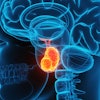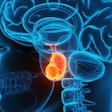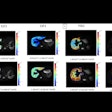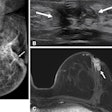Using functional MRI (fMRI), researchers concluded that images of infants' faces appear to activate brain activity in adults that reflects preparation for movement and speech, as well as feelings of reward, according to a study in the journal NeuroImage.
The findings suggest that studying this activity could yield insights into caregiving behavior, as well as cases of child neglect or abuse.
In the study from the National Institutes of Health and researchers in Germany, Italy, and Japan, the group showed seven men and nine women a series of images and recorded their brain activity. While in an MRI scanner, participants viewed images of faces of puppies and kittens, full-grown dogs and cats, human infants, and adults.
When the researchers compared the areas and strength of brain activity in response to each kind of image, they found that infant images evoked more activity than any of the other images in brain areas associated with three main functions: premotor and preverbal activity, facial recognition, and emotion and reward.
Taken together, the researchers contend, the findings suggest a readiness to interact with infants that previously has only been inferred -- and only inferred for parents. Such brain activity in nonparents could indicate that the biological makeup of humans includes a mechanism to ensure that infants survive and receive necessary care.


.fFmgij6Hin.png?auto=compress%2Cformat&fit=crop&h=100&q=70&w=100)





.fFmgij6Hin.png?auto=compress%2Cformat&fit=crop&h=167&q=70&w=250)











